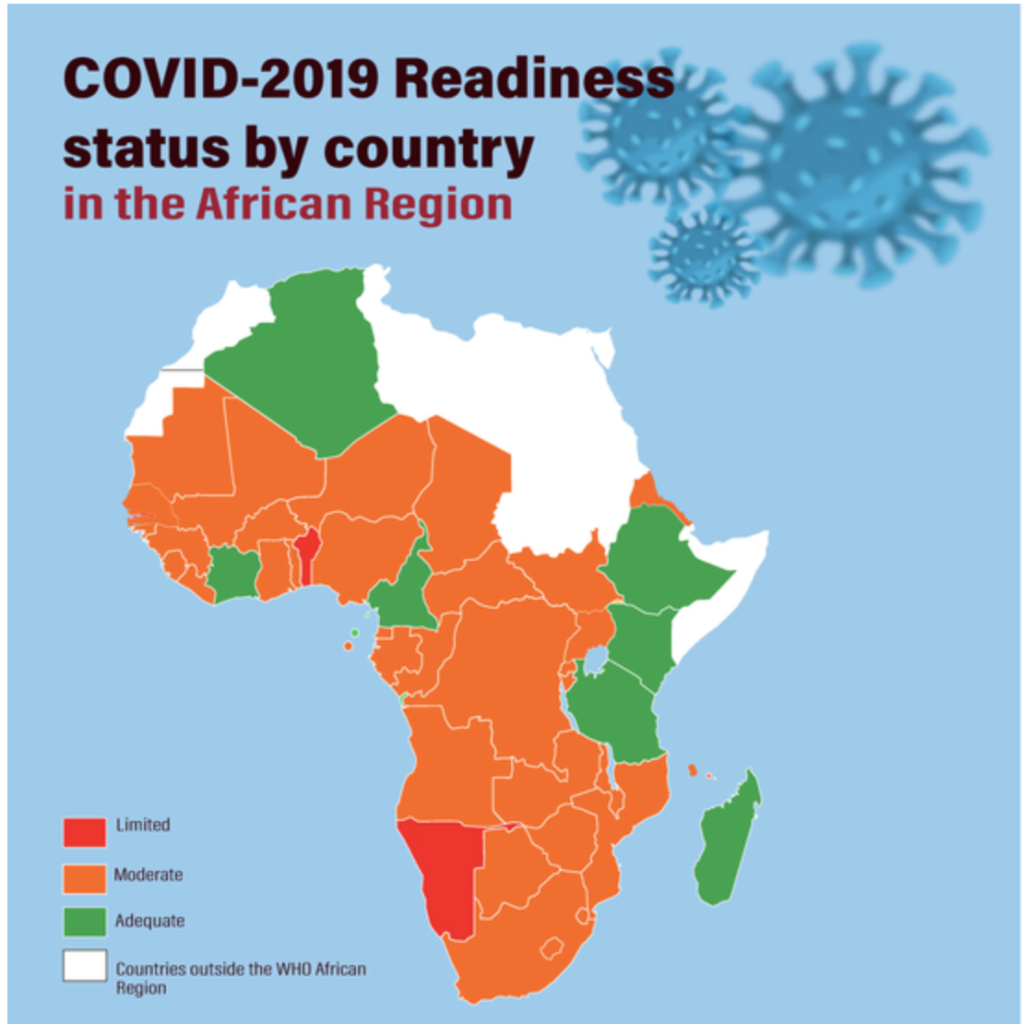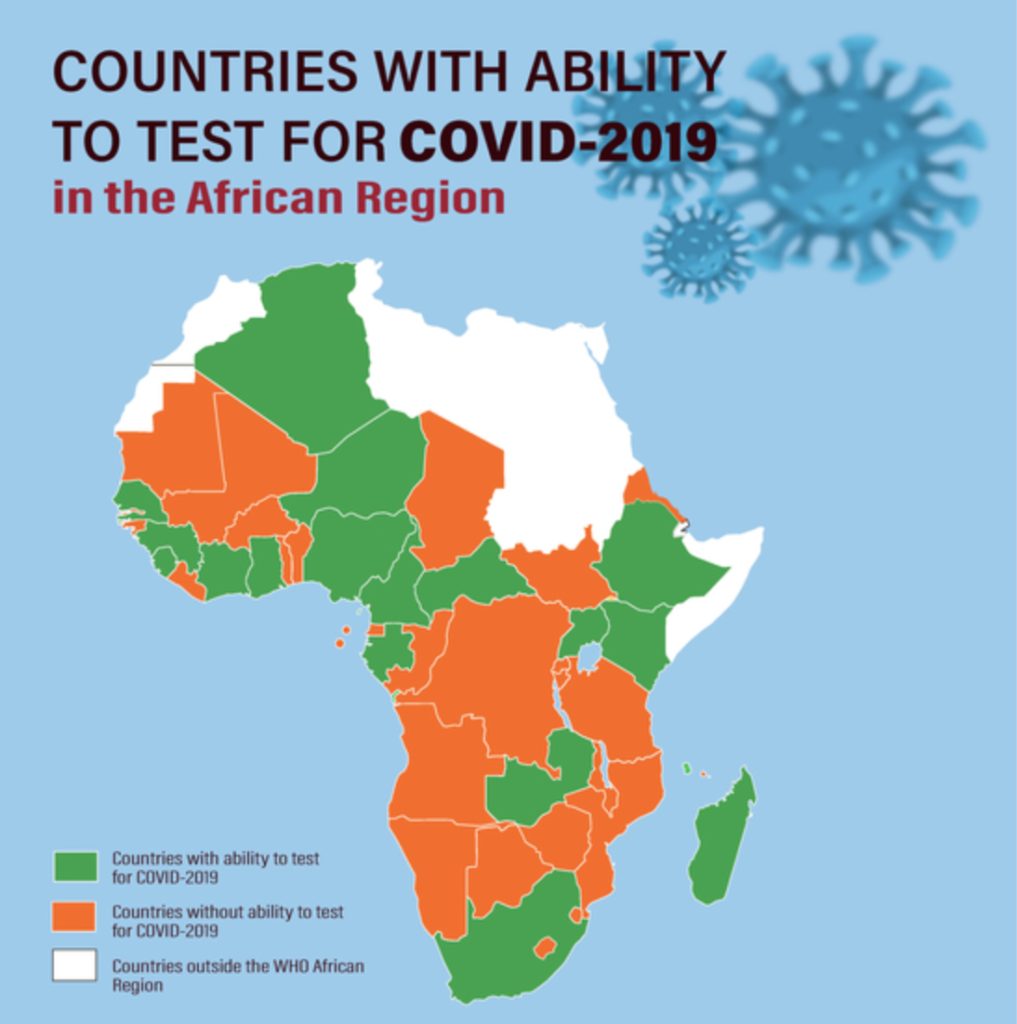
Government says measures are in place to halt spread of outbreak in the country
THE AFRICA BAZAAR MAGAZINE
February 28, 2020
Nigeria government Friday said the fast spreading coronavirus outbreak that started in Wahun, China nearly three months ago and has caused the World Health Organization to declare a current global health emergency, has hitch-hiked to the country’s doorstep.
On Thursday, the country’s Federal health officials confirmed a first case of coronavirus ill (COVID-19) patient in the country in Lagos state, indicating the first reported case in sub-Saharan Africa. Algeria and Egypt also have both reported cases of CoViD-19.
The reported case in Nigeria, an Italian citizen who works in Nigeria and recently returned from Milan, Italy to Lagos on Tuesday, Feb. 25, was confirmed by the Virology Laboratory of the Lagos University Teaching Hospital, part of the Laboratory Network of the Nigeria Centre for Disease Control.
The health officials said the patient is currently under medical care at the Infectious Disease Hospital in Yaba, Lagos and is “clinically stable, with no serious symptoms.
The appearance of the virus in Lagos state, one of the most densely populated cities in the Africa and in the world with more than 20 million residents, has prompted fear among people that the nation’s health system and infrastructure may not be able to handle this kind of health emergency demand.
Cognizant of fear among Nigeria’s residents, Nigeria’s Minister of Health, Hon. Dr. Osagie Ehanire quickly moved to assure Nigerians that the agency he leads, the Federal Ministry of Health has in fact been preparing for the arrival of the virus
“I wish to assure Nigerians that we at FMOH have been beefing up our preparedness capacities since the first confirmation case in China and we will use all the resources made available by the government to respond to this case,” Dr Osagie Ehanire said.


According to health officials, the ministry last week held a press briefing with reporters to share information on how the agency has been preparing and building up its defenses, which includes putting in place heightening entry screening, public awareness, expanded surveillance and laboratories for testing, to swiftly stop the virus on first entry in the country.
The Nigeria Centre for Disease Control also convened a training for health care workers on infection prevention and control to strengthen COVID-19 preparedness in Africa
Health experts from the international community say despite the woeful public health care system infrastructure in the country, if done diligently and prudently, Nigeria is in a much stronger position to prevent an outbreak in the country if the government applies lessons learned from the 2014-2016 Ebola outbreak by leveraging the mechanisms to halt CoViD-19.
In 2014 to 2016, West Africa experienced one of the most deadly and largest health epidemics in history as Ebola virus ravaged through several West African countries, including Guinea, Liberia, Mali, Nigeria, Senegal, and Sierra Leone, killing 11, 325 people in its wake. The Ebola virus started as a cluster in southeastern Guinea and quickly spread to other domestic countries in Africa due to poor public healthcare and weak surveillance systems in many of the continent’s nations. The virus entry into the Western world through a traveler from Liberia prompted a global health alarm among people, and resulted in the WHO declaring an international health emergency.
Experts say that experience precipitated African leaders, and health ministers of the 15-member Economic Community Of West African States to convene an urgent meeting this month to initiate a regional readiness strategy and increase joint effort in cross border surveillance to promote awareness.
Nigeria’s health officials said the ministry has already started “working to identify all the contacts of the patient,” since his arrival in Lagos. They urged everyone residing Nigeria to “take care of their health and maintain hand and respiratory hygiene to protect themselves and others, including their own families,” and asked those who are ill with respiratory illness or “person with persistent cough or sneezing should stay home or keep a social distance, but not mix in crowd.”
“Please be reminded that most people who become infected may experience only mild illness and recover easily, but it can be more severe in others, particularly the elderly and persons with other underlying chronic illnesses,”



